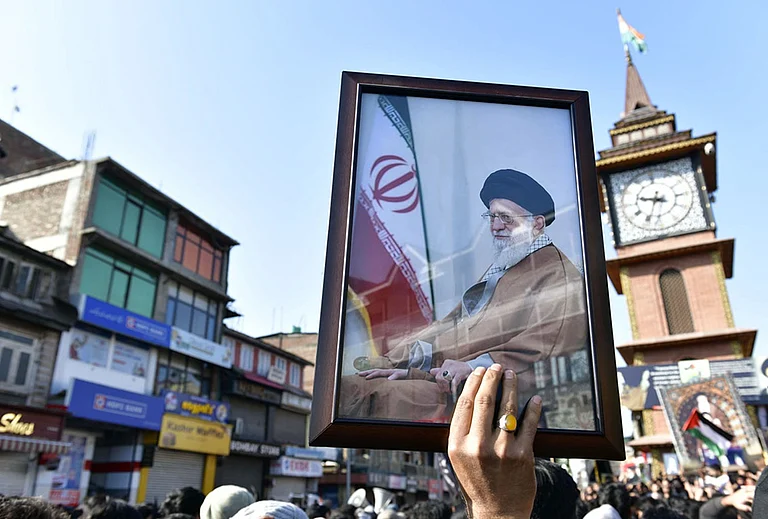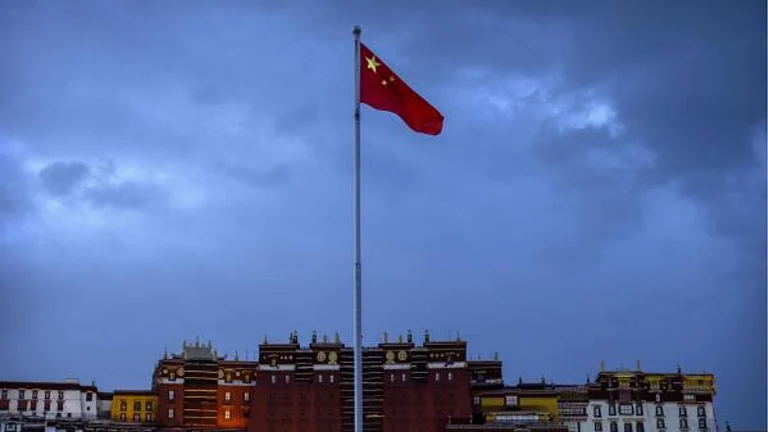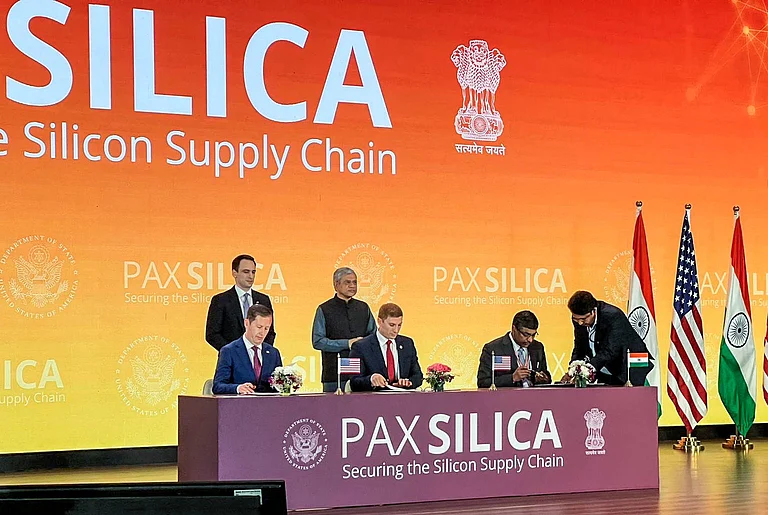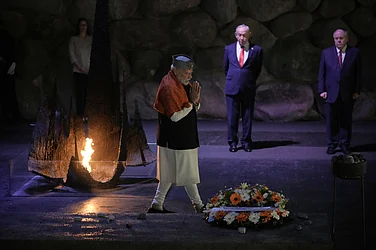The Chinese State spends billions of dollars annually on teaching the Chinese language to the rest of the world through hundreds of Confucius Institutes across the world. However, these institutes are accused by the US Congress, the US State Department, media reports, and non-profit organisations of furthering the Chinese state’s agenda, stifling free speech, and weaponing language in the garb of teaching it.
Confucius Institutes, run by a Chinese government agency known as Hanban, are operated in partnership with a host country’s college or university. There have been instances when they have influenced host institution’s decision-making.
In 2008, Israel’s Tel Aviv University closed an art exhibition on Falun Gong, a spiritual discipline that originated in China. The following year, America’s North Carolina State University cancelled a visit of Tibetan spiritual leader the 14th Dalai Lama.
An Israeli court found that the Tel Aviv University had illegitimately cancelled the Falun Gong exhibition because of Chinese government pressure. In North Carolina, the Confucius Institute’s director warned state officials that the Dalai Lama’s visit could hurt “strong relationships we were developing in China”.
Since their inception in South Korea’s Seoul in 2004, Confucius Institutes have enrolled up to 9 million students at 525 institutes in 146 countries and regions, as per the Heritage Foundation. In 2018, Politico magazine reported that the Chinese government was pouring in up to $10 billion annually into the initiative.
It’s an interesting sum for the promotion of one’s language. But it’s not. In the Chinese government’s own words, the initiative is a propaganda arm of the state. Politburo standing member Li Changchun said in 2009 that Confucius Institutes are an “important part of China’s overseas propaganda set-up”.
He further said, “The Confucius Institute is an appealing brand for expanding our culture abroad. It has made an important contribution toward improving our soft power. The ‘Confucius’ brand has a natural attractiveness. Using the excuse of teaching Chinese language, everything looks reasonable and logical.”
Politico cited a 2010 Chinese state-run People’s Daily article by propaganda minister Liu Yunshan as saying, “With regard to key issues that influence our sovereignty and safety, we should actively carry out international propaganda battles against issuers such as Tibet, Xinjiang, Taiwan, human rights, and Falun Gong. We should do well in establishing and operating overseas cultural centres and Confucius Institutes.”
The Chinese State decides what would be taught in these institutes and who would teach it. That would not be an issue for any other country, such as the democratic India or United States, but it’s a different question altogether for China that has whitewashed its historical wrongs like the Great Leap Forward and Tiananmen Square massacre from domestic public memory.
Harsh V Pant and Akshay Ranade wrote for the Observer Research Foundation, “These institutes tend to project a particular image of China, which is devoid of its recent political history. The references to Tiananmen Square, for instance, are deliberately eschewed as a matter of policy and even discussions of issues like human rights within China are consciously discouraged.”
The Chinese government has “three Ts” as red lines – Tibet, Taiwan, and Tiananmen. Moreover, the language itself is weaponised. The Politico noted, “They only teach simplified characters, which are used on Mainland China but not in Taiwan, Hong Kong or Singapore, estranging language learners from Chinese texts produced anywhere but the mainland.”
This would mean that students who learnt Chinese at Confucius Institutes would only read content from Mainland China where the Communist Party dictates what’s published. The writings of CCP’s critics from Xinjiang, Tibet, or Hong Kong would be out of bounds.
The US-based National Association of Scholars published a report on Confucius Institutes in which universities were said to “outsource” American education.
The NAS report noted, “The Hanban wields hefty influence in its institutes. Confucius Institute instructors are screened, trained, and ‘dispatched’ from China by the Hanban, which also pays their salaries and often provides housing. The Hanban supplies textbooks, along with annual grants around $100,000 to cover operating expenses and subsidise university staff salaries. The Confucius Institute Constitution on the Hanban’s website implies that Chinese law applies within the premises of its institutes.”
Therefore, it’s not just the hold of the Chinese government over teachers and teaching content that’s troubling. The very notion of sovereignty of the host university and host country comes into question with the last point that NAS report raises – “The Confucius Institute Constitution on the Hanban’s website implies that Chinese law applies within the premises of its Institutes”. This effectively makes these institutes a diplomatic outpost of the Chinese State.
Just like China is accused of using money to lead developing countries into debt-traps, it’s accused of entrapping under-funded public universities.
Steven I Levine, a retired American professor of Chinese politics and history, told Foreign Policy that he was instrumental in bringing Confucius Institute to the University of Montana. He said he should have known better but the lack of funds with the university and China’s promises seemed too good. The Heritage Foundation has noted that some American institutions have taken as much as $1.7 million annually from the Chinese government.
Steven told Foreign Policy, “Our institutional poverty rather than our greed motivated us. We pledged to ourselves to brook no interference from Beijing in what we did. As far as I am aware, there has been none except, of course, in terms of the recruitment criteria for teachers in China itself that preclude any who would function as anything other than mouthpieces of the Chinese State.”
The US Department of State in 2020 designated Confucius Institutes as foreign mission of the Chinese state and called it “Chinese Communist Party’s global influence and propaganda apparatus”.
Just like China, Russia has also been accused of using language to further its agenda. A European Union report noted, “Just as Russia has been using existing trade and energy interdependencies to promote its geopolitical aims in the past, nowadays it uses culture, language, education and religion to enhance its position as a regional or, according to its own narrative, global power.”
Russia also runs New Eastern Outlook in English and Russian through the Russian Academy of Science’s Institute of Oriental Studies. It promotes disinformation and propaganda focused primarily on the Middle East, Asia, and Africa, according to the US Department of State. The State Department added in a report that it combines pro-Kremlin views of Russian academics with anti-US views of Western fringe voices and conspiracy theorists.
Language has a well-established place in geopolitics. Leaders have often used it to set the tone for international engagement. Prime Minister Narendra Modi has earlier spoken in Nepali while addressing the press with former Nepali Prime Minister K.P. Sharma Oli in Delhi and Kathmandu. Similarly, Oli also gave an hour-long interview to an Indian news channel in Hindi when his government was believed to be trying to reach out to New Delhi after several fiery statements over boundary disputes.
World leaders are often seen tweeting in other leaders’ languages when they are posting messages during visits or are greeting them on their national holidays.
There are Alliance Française institutes for French, British Council institutes for English, and Germany’s Goethe-Institut, across the world. However, none of these institutes work like Confucius Institutes. While they definitely advance their country’s language and culture, they don’t enter into partnerships with host country’s institutions and get so influential that they can veto who gets to attend events in the university like Confucius Institutes do. In doing so, Confucius Institutes are unique and exceptionally powerful with their funding and scale.






















